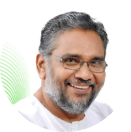On Types of Governments
- Views and Words / 31
- 29-11-2022
- 02 Min Read
Mahatma Gandhi has answered a specific question – ‘what exactly is a good government?’ He said that the best government is the one that governs the least. Any government that governs the least must be a self-regulated government. A self-regulated government applies only the minimum force to establish law and order. In such a state of affairs, the ruler also has to regulate himself. According to the Indian Systems, the prime qualification of a ruler is that he must be able to control himself. All great kings in India had traditionally attained such a quality and they could successfully regulate the ruled. The logic behind the argument is that only the self-regulated will be able to regulate others. Hence, a system of self-regulation is the basic principle of democracy. Instead, democracy can never be a system of management, externally managing or regulating the citizens, but it is a government of internal regulation by every citizens. This internal regulation of the citizens has been spelt out as ‘submission of oneself to law’. A law abiding citizen must be a self-regulated citizen.
Democracy has often been described as the best form of government; because it is only in a democratic set up that we impose regulation on oneself. Democracy never believes in centralisation of power. Democracy is a government of decentralisation through the practice of self-regulation by individuals and institutions. It is inappropriate to define democracy as the government ‘of the people, by the people and for the people’, because such a definition endorses up anthroprocentrism. Anthroprocentrism believes that man is the centre of the universe and everything can be interpreted in tune with the interests of the human beings. The notorious Greek slogan that ‘man is the measure of all things’ is the declaration of the anthoprocentric exercise on nature.
Democracy believes that the centre of everything should be within itself and not external to it. Therefore the centre of man must be within himself and the centre of a particular institution named judiciary or executive also must be within themselves. That is, as a person has to regulate himself. Any institution or establishment in democracy also has to regulate itself by framing principles of regulations by itself. For ex. The judiciary, legislature, executive and the media in a democratic set up have to frame rules regarding the regulation of the respective institutions by themselves. That is, legislature cannot go beyond a limit that has been set by the legislature itself. Therefore it has often been considered that regulation of a particular democratic institution, for ex. take the case of judiciary, cannot be regulated by the executive or legislature. Therefore, no democratic set up can entertain the use of unregulated power mechanism. The unregulated use of power mechanisms takes a person as well as an institution to the point of dictatorship in which power has been centralised either on a person or on an institution. Centralisation of power can never be satisfied with limitations. Hence, it stretches its wings to the unlimited horizon. As we have already seen that anything that is unlimited is impractical and hence all dictatorial forces of any kind have to face their natural fall.
Dictatorship can never be confined to the art and science of statecraft alone. Dictatorship appears in the form of centralisation of worldly things, including wealth and positions along with power. The centralisation of wealth appears in a form of dictatorship of economic authority over the economically less privileged. It is a fact that we cannot have a group of people who can be classified under a class named ‘have-nots’ as it had been dreamt by Karl Marx, because it is not possible to find out a person who has nothing with him. Every man is born with a set of talents. The talents of each person have to be nurtured by constant training. A man with a trained talent is an economically powerful person. Since it is impossible to find out a man free from talents, the term cannot be true to the contextual reality in absolute sense. But at the same time it is a fact that there are economically less privileged in a society driven by market forces.
These texts are as given by Dr K S Radhakrishnan, a renowned writer and an voracious reader, during 2010-2014. These posts help us dig into the inner meanings of Indian culture, Scriptures and heritage.


